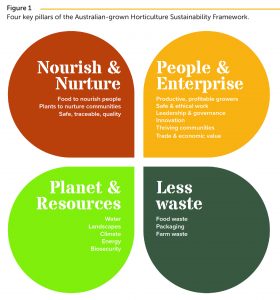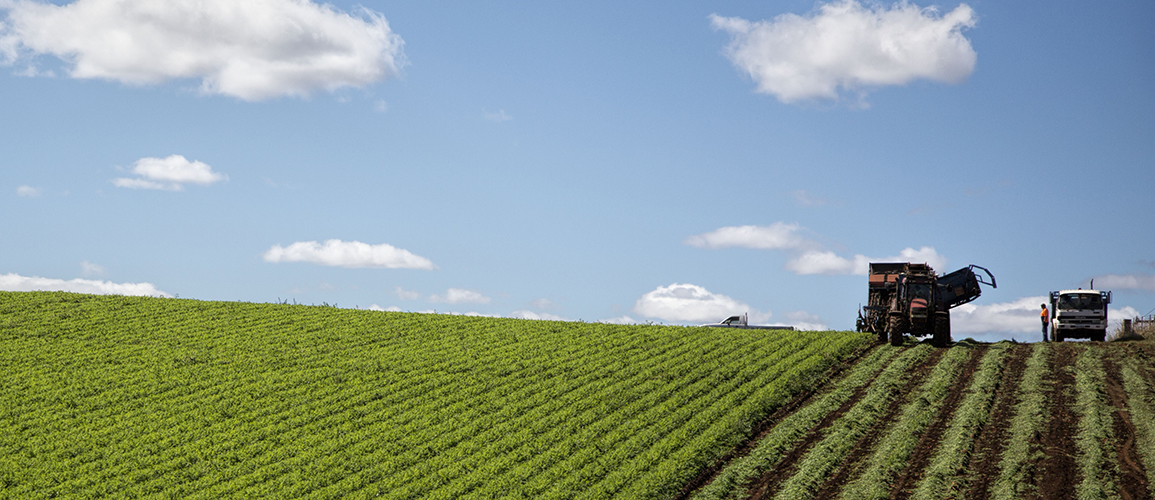Five-year plan aiming to drive positive change across the Australian vegetable industry
During 2021, Hort Innovation worked closely with growers and other industry stakeholders to refresh the documents that guide investment of grower levies. The 2022-2026 Strategic Investment Plans reflect the current needs and aspirations of industry, as well as provide an overarching roadmap for each industry to follow.
To complete the picture of how levies will be invested over the five years, the 2021/22 Annual Investment Plan (AIP) for each industry – including vegetable – was released in early December 2021.
The vegetable Strategic Investment Plan (SIP) 2022-2026 provides a roadmap to guide Hort Innovation’s investment of vegetable industry levies and Australian Government contributions, ensuring investment decisions are aligned with industry priorities.
Its intent is to drive opportunities in both domestic and international markets for vegetable products while accelerating sustainable production practices, managing risks and building a more resilient and informed industry through people development, communication and extension of research.
Currently, the vegetable research and development (R&D) fund has capacity to invest in new projects from FY2022. Careful prioritisation of future investment needs is required over the next five years.
The four outcome areas of this SIP cover significant themes under which programs and investments will be focused.
Industry outcomes
Outcome statements as identified and prioritised by the vegetable industry have been prepared under four key outcome areas:
- Industry supply, productivity and sustainability.
- Demand creation.
- Extension and capability.
- Business insights.
Outcome 1: Industry supply, production and sustainability
To accelerate the application of production practices that are proven to optimise returns and reduce risk to growers.
Achieving the outcome will involve:
- New knowledge and understanding of sustainable production systems for Australian vegetable growers including enhanced soil health, improved water and nutrient use efficiency, precision inputs and labour use efficiency.
- Responding to environmental change and climate variability.
- Advances in biosecurity and the management of pests and diseases through a proactive and prepared industry.
- Optimising the supply chain to improve quality and traceability, as well as reduce wastage and improve sustainability of vegetable production systems.
- Improvements in protected cropping and intensive production technologies.
- Proactively monitoring potential crop protection regulatory threats and having access to a broader suite of effective, socially acceptable and environmentally sound crop protection solutions.
Outcome 2: Demand creation
To maintain and strengthen consumer demand as the foundation for sustainable expansion of production and consumption in both domestic and international markets. It means the industry is investing to:
- Grow the value of Australian vegetable exports by supporting industry to market premium products, targeting higher value market segments.
- Articulate the value proposition for Australian vegetables and pursue more targeted market and channel growth opportunities.
- Develop strong relationships across the supply chain with a shared goal to grow the category.
- Enhance opportunities for value-adding and packaging.
- Improve stakeholder engagement with the foodservice sector and the education of health benefits to consumers.
Outcome 3: Extension and capability
To manage knowledge, relationships, systems and processes required to communicate effectively with internal and external stakeholders.
Achieving the outcome will involve:
- A change in knowledge, attitude, skill, aspiration and practice for grower/industry profitability and sustainability through use of best practice and innovation.
- Maintaining and improving industry cohesiveness, with the majority of businesses and the majority of the industry supply chain actively engaged in implementation of this strategy.
- Growers, supply chain, media and governments being well-informed on industry initiatives and achievements as a vital part of regional communities and networks.
- Increased on-farm use of R&D outcomes that will build a stronger, more resilient industry – in addition to improved networks and cross-industry collaboration.
- Proactive strategic and evidence-based decision-making in businesses and for industry on investment, priorities and risk management.
Outcome 4: Business insights
To deliver data and insights that is foundational to achieving success in the other three outcome areas of demand creation – supply, productivity and sustainability as well as extension and capability.
Achieving the outcome will involve reliable baseline data and analysis to provide insights and understand current and emerging trends. Key investments will support the provision of consumer knowledge and tracking, access to trade data, production statistics, forecasting and independent reviews to enable better decision-making process at industry level and individual businesses.
These investments underpin and are complementary to delivery of the other outcome areas.
Investment opportunities through Hort Frontiers
Innovation is key to the future success of Australian horticulture. The next evolution of the long-range, higher risk and transformational R&D that has the potential to make a significant impact will be possible through Hort Innovation’s Hort Frontiers program strategic partnership initiative.
Hort Frontiers is a strategic partnership initiative that facilitates collaborative, cross-industry investments focused on the longer term and more complex themes identified as critical for Australian horticulture by 2030.
The partnership framework is currently being established and will include a number of key investment themes for potential investment to guide the initiative and drive transformational R&D across horticulture.
Key investment themes will include:
- Environmental sustainability (water, soil and climate).

- Green cities.
- Health, nutrition and food safety.
- Advanced production systems.
- International markets.
- Novel food and alternate uses (waste reduction).
The development of these areas for investment will benefit all of horticulture, with support from partners with aligned priorities to co-invest in deliverables identified that require alternative funds available outside the levy.
Hort Frontiers is being developed to align with the Australian-grown Horticulture Sustainability Framework to invest in specific impact areas to drive innovation and sustainability initiatives.
The vegetable industry views all the above investment areas as opportunities for success into the future. Partnering with Hort Frontiers on these areas would provide the vegetable industry with opportunities for access to world-class research, specialised project management teams and large-scale R&D.
Australian-grown Horticulture Sustainability Framework
Hort Innovation has developed the Australian-grown Horticulture Sustainability Framework report, aiming to strengthen the horticulture industry’s sustainability to meet the changing expectations and needs of growers, consumers, the community, investors and governments.
The framework should be cross-referenced when undertaking prioritisation of investments.
Find out more
Please click here to read the full Hort Innovation Vegetable 2022-2026 Strategic Investment Plan.
For further details or if you have any questions, please contact Hort Innovation Industry Strategic Partner Mark Spees on 0439 574 173 or email mark.spees@horticulture.com.au.
Alternatively, you can phone the AUSVEG office on 03 9882 0277.

